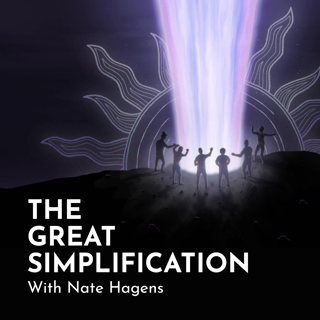
Wisdom Over Power: Why Contemplation & Wonder Are Essential for the Future of Humanity with Iain McGilchrist
(Conversation recorded on January 2nd, 2025) When looking at our global challenges, it can be easier to focus on the external factors that could be different. Yet a critical part of creating impac...
26 Feb 20251h 59min

What is Wealth? | Frankly 86
(Recorded February 18th, 2025) Individually and collectively, we have become fixated on the pursuit and accumulation of wealth. But what is wealth? Our singular focus on financial capital obscures a...
21 Feb 202516min

The 'Decline' of Nations: How Elite Surplus and Inequality Lead to Societal Upheaval with Peter Turchin
(Conversation recorded on November 22nd, 2024) The first few months of the new year have brought a cacophony of political news and power plays, bringing with it an uproar of public outrage in the Un...
19 Feb 20251h 5min

The Light Triad | Frankly 85
(Recorded February 12th, 2025) Deception and self-interest seem to be increasingly prevalent in our modern cultural reality. From the highest levels of power to the cultural metrics of what is consi...
14 Feb 202515min

Reimagining the Cultural Narrative: Art and Storytelling for Systemic Change with Dougald Hine
(Conversation recorded on November 12th, 2024) In today's modern era, the overwhelming flood of information that constantly flows our way can leave us feeling disoriented, lost, and powerless. Eve...
12 Feb 20251h 36min

The Plastic Crisis: A Health and Environmental Emergency | Reality Roundtable 15
(Conversation recorded on January 21st, 2025) Many of us are familiar with the problem of plastics as a distant issue in the ocean, primarily affecting fish and sea turtles. While these environmenta...
10 Feb 20251h 39min

Share Your Story: A Call for Responses to The Great Simplification | Frankly 84
Link to record and submit your story There are further directions on the video submission site to set you up for success when recording. Most of all, we are looking for real stories from real people. ...
7 Feb 20254min

Always Adding More: The Unpopular Reality about Energy Transitions with Jean-Baptiste Fressoz
(Conversation recorded on November 6th, 2024) The vision of a carbon-free, net-zero society is often framed around the promise of transitioning away from fossil fuels. But what can we learn from p...
5 Feb 20251h 15min




















